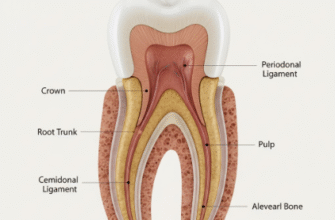It's a tempting promise, isn't it? The idea that once you get dental implants, you're set for life. A permanent, worry-free solution to missing teeth. This notion is widely circulated, partly through enthusiastic marketing and partly through the genuinely impressive track record of dental implant technology. However, like many things that sound too good to be true, the claim that all dental implants last a lifetime needs a closer, more nuanced look. While implants are indeed a remarkable and often very long-lasting option, “lifetime” is a powerful word with a lot of variables attached.
Before we dive deeper, let's quickly touch upon what dental implants are. In essence, they are artificial tooth roots, typically made of biocompatible titanium, surgically placed into the jawbone. Over time, a process called osseointegration occurs, where the bone fuses with the implant, creating a strong and stable foundation. An abutment is then attached to the implant, and finally, a custom-made crown (the visible tooth part) is placed on the abutment. This three-part system is designed to mimic the look, feel, and function of a natural tooth.
So, where does this “lifetime” idea come from? Well, dental implants do have very high success rates. Numerous studies point to long-term survival rates often exceeding 90-95% over 10 to 15 years, and many individuals have implants that function perfectly for much longer, even decades. Titanium is incredibly durable and resistant to corrosion. These factors understandably contribute to the perception of permanence. However, “high success rate for many years” isn't quite the same as a universal lifetime guarantee for every single patient.
Peeling Back the Layers: Factors Influencing Implant Lifespan
The longevity of a dental implant isn't solely dependent on the implant itself. It's a complex interplay of various factors, many of which are within the patient's control, while others relate to the procedure and materials used.
The Human Element: Your Role in Implant Success
This is perhaps the most critical, yet sometimes underestimated, aspect of implant longevity.
Oral Hygiene: The Non-Negotiable
Just like natural teeth, dental implants require meticulous oral hygiene. While the implant and crown can't decay, the surrounding gum tissue and bone are vulnerable. Poor oral hygiene – inadequate brushing, flossing, and skipping professional cleanings – can lead to plaque buildup. This can cause inflammation of the gums around the implant, a condition known as mucositis. If left untreated, mucositis can progress to peri-implantitis, which involves bone loss around the implant. Peri-implantitis is a primary cause of implant failure. Essentially, the foundation supporting the implant erodes.
Lifestyle Choices: Smoking, Grinding, and Health
Certain lifestyle choices can significantly impact how long your implants last. Smoking is a major risk factor. It impairs healing, reduces blood flow to the gums and bone, and makes the mouth more susceptible to infection, thereby increasing the risk of peri-implantitis and implant failure. Patients who smoke generally experience lower implant success rates.
Bruxism, or chronic teeth grinding and clenching, can also pose a threat. The excessive forces generated can put undue stress on the implant, the abutment, and the crown. Over time, this can lead to mechanical complications like screw loosening, component fracture, or even damage to the implant itself or the opposing teeth. Dentists often recommend night guards for patients with bruxism to protect their implants and natural teeth.
Certain systemic health conditions, particularly if uncontrolled, can also influence implant outcomes. For example, uncontrolled diabetes can affect healing and immune response, potentially increasing the risk of complications. It's vital to discuss your full medical history with your dental professional.
Commitment to Care: Follow-ups are Key
Regular dental check-ups and professional cleanings are paramount. These appointments allow your dentist to monitor the health of your implants, the surrounding tissues, and the integrity of the restoration. Early detection of any potential issues, like minor inflammation or a slightly loose crown, can often be addressed simply and prevent more significant problems down the line.
The Professional Touch: Skill and Material Matters
The expertise of the dental team and the quality of the components used also play a vital role.
The Dentist's Expertise
Placing dental implants is a sophisticated procedure that requires precise planning and surgical skill. The experience and training of the dentist or oral surgeon performing the implant surgery are crucial. Proper assessment of bone quality and quantity, accurate implant placement, and careful management of the surrounding tissues all contribute to long-term success. A well-executed procedure minimizes risks and sets the stage for optimal healing and integration.
Quality of Materials
While most dental implants are made from medical-grade titanium, there can be variations in manufacturing quality, surface treatments, and design among different implant systems. Similarly, the materials used for the abutment and crown (like zirconia or porcelain) can vary in durability. Reputable dental professionals typically use well-researched implant systems with a proven track record.
The Surgical Procedure Itself
Sometimes, additional procedures like bone grafting or sinus lifts are necessary to ensure there's enough healthy bone to support an implant. The success of these adjunctive procedures directly impacts the foundation for the implant and, consequently, its potential longevity.
The Implant System: Wear and Tear
Even with perfect placement and care, components can experience wear over time.
The Crown vs. The Implant
It's important to distinguish between the implant (the titanium post in the bone) and the restoration (the crown, bridge, or denture attached to it). The implant post itself, once successfully osseointegrated and properly maintained, has a very high chance of lasting for many, many years, potentially even a lifetime. However, the crown attached to it is subject to the same wear and tear as natural teeth or other dental restorations. Crowns can chip, crack, or wear down over time and may need to be replaced, typically after 10-15 years, though some last much longer and others may need attention sooner. This doesn't mean the implant itself has failed, just that the “tooth” part needs refreshing.
Mechanical Considerations
Occasionally, mechanical issues can arise. The small screw that connects the abutment to the implant or the crown to the abutment can sometimes loosen. This is usually a simple fix, involving tightening the screw. In rarer cases, components can fracture, especially under excessive force (like from bruxism or an accident). Advances in implant design and materials have reduced these risks, but they are not entirely eliminated.
Defining “Success” – It's More Than Just Staying Put
When we talk about implant longevity, it's also useful to understand the difference between “survival” and “success.” An implant might still be present in the jawbone (survival) but could have some issues, like minor bone loss or gum recession, that might not meet the strictest criteria for complete success. The goal is always for an implant to be both surviving and fully successful, meaning it's stable, functional, aesthetically pleasing, and surrounded by healthy tissue.
What the Long-Term Data *Really* Says
Decades of research and clinical experience have provided a wealth of data on dental implant performance. As mentioned, studies consistently show high survival rates (often in the 90-98% range) over 10 to 15 years. Some studies following implants for 20 years or more also report excellent outcomes. This is fantastic news and underscores why implants are considered such a reliable solution.
However, “lifetime” is an indefinite period. An implant placed in a 30-year-old patient would need to last 50, 60, or even more years to truly be a “lifetime” solution for them. While many implants achieve this, it's not a certainty for every single one. The percentage of implants that last, say, 40 or 50 years, will naturally be lower than the percentage that last 15 years, simply due to the increased time for potential biological or mechanical issues to arise.
Think of dental implant care like maintaining a high-performance car. Skipping regular check-ups and neglecting home care is like ignoring oil changes and tire rotations. Eventually, even the best engineering can falter without proper attention. This neglect can lead to preventable complications and potentially shorten the lifespan of your valuable dental investment.
The Crucial Role of Ongoing Maintenance
This cannot be overstated. If you want your dental implants to last as long as possible, diligent, lifelong maintenance is key. This includes:
- Excellent home care: Brushing at least twice a day with a soft-bristled brush, and flossing daily (specialized flosses or interdental brushes might be recommended around implants).
- Regular professional cleanings: Typically every 6 months, or as recommended by your dentist. These cleanings are different for implants than for natural teeth, using specific instruments to avoid scratching the implant components.
- Routine dental check-ups: Allowing your dentist to examine the implants, surrounding tissues, and the stability of the crown. X-rays may be taken periodically to check bone levels.
- Wearing a night guard if you grind your teeth.
- Avoiding smoking and managing systemic health conditions.
When Things Don't Go To Plan: Addressing Implant Complications
Despite everyone's best efforts, implants can sometimes fail. Failure can occur early (e.g., if osseointegration doesn't happen properly) or many years later (often due to peri-implantitis or mechanical issues). If an implant fails, it doesn't necessarily mean you can't have another one. Often, the failed implant can be removed, the site can be allowed to heal (sometimes with bone grafting), and a new implant can be placed, often with a high degree of success. The key is early detection and intervention.
Setting Realistic Expectations: A Long-Term Investment
Dental implants represent a significant investment in your oral health and quality of life. They are, for most people, the closest thing to regaining natural teeth. They offer superb stability, function, and aesthetics. While the dream of a “set it and forget it for life” solution is appealing, a more realistic expectation is that dental implants are a very long-term solution that, with proper care and a bit of luck, can last for many decades, and for many people, they do indeed last for the rest of their lives.
However, understanding that they require ongoing care, that parts like crowns may need replacement, and that individual factors play a huge role, helps create a more informed perspective. This isn't to diminish their value—far from it. It's about appreciating them as a sophisticated medical device that interacts with your body and lifestyle.
In conclusion, while the blanket statement “all dental implants last a lifetime” is a myth, the reality is still incredibly positive. Dental implants are highly successful, durable, and offer a fantastic long-term prognosis when patients commit to diligent oral hygiene and regular professional care. They are a cornerstone of modern dentistry for a reason. By understanding the factors that contribute to their longevity, you can play an active role in ensuring your dental implant investment serves you well for as many years as possible, aiming for that personal “lifetime” success story.








